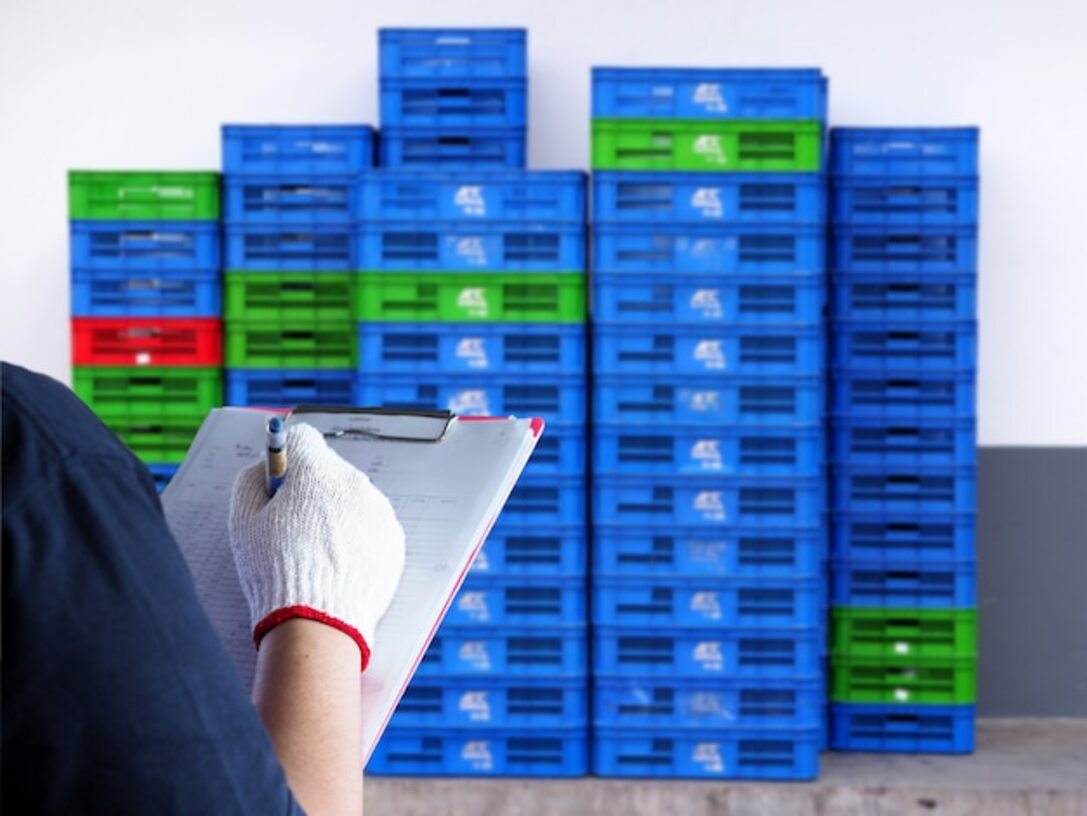Simplify your life with an organized and functional home.

Simplify your life with an organized and functional home. Organizing your spaces not only enhances the aesthetics of your home but also affects your mental and emotional well-being. Imagine coming home and finding everything in its place, without chaos or distractions. In this article, you will discover how to achieve a more harmonious and efficient environment that will allow you to enjoy every corner more. With practical tips and effective strategies, you will transform your home into a space where simplicity and functionality go hand in hand.
1. Benefits of an organized home: beyond aesthetics
An organized home offers benefits that go beyond just a tidy appearance. Firstly, a clear environment can have a positive impact on your mental health. Clutter not only generates anxiety but can also distract you and make it difficult to concentrate. By establishing an effective organizational system, you can reduce daily stress and create a space that fosters peace and mental clarity. Having each item in its place acts as a visual cue of control, allowing you to feel more in tune with yourself and your surroundings.
In addition to psychological benefits, home organization significantly improves the functionality of your spaces. When everything is well organized, it is easier to find what you need at the right moment, saving time and energy. This is especially valuable in busy daily routines where every minute counts. A functional home not only facilitates daily tasks but also promotes healthy habits by encouraging a more proactive and efficient lifestyle. By simplifying your physical environment, you are also simplifying your daily life, leaving you more space to enjoy important moments with your loved ones or to dedicate time to your personal passions.
2. How to declutter and get rid of mess
To declutter and get rid of the mess, it is essential to start with an honest evaluation of your belongings. Take some time to go through each room in your home and ask yourself what you really need and what can be eliminated. An excellent strategy is the four-box method: designate one box for keeping, another for donating, a third for recycling, and a final one for trash. By categorizing your items this way, you will not only make it easier to decide what stays and what goes, but you will also allow yourself to visualize the space you are freeing up in your home. Remember that less is more; keeping only the essentials will help create a more peaceful environment.
Once you have identified the items you want to remove, it is important to act quickly to avoid the temptation to hold onto unnecessary things. Set aside a specific day to take donations to a local center or schedule the collection of recyclable materials in your area. Additionally, consider establishing an "in-out" system, where for every new item you acquire, you commit to getting rid of an old one. This habit will not only keep your home clutter-free in the long term but also foster a more mindful attitude towards your purchases and possessions. Over time, you will see how these small changes can have a significant impact on your overall well-being and the functionality of your living space.
3. Strategies to maximize space at home
Maximizing space at home is essential for maintaining an organized and functional environment. One of the most effective strategies is the use of multifunctional furniture, which not only offers comfort but also allows for optimizing every corner of the home. For example, a bed with built-in drawers or a sofa bed can serve both for resting and for storing items. By choosing this type of furniture, you can free up valuable space and reduce clutter, thus creating a more relaxing and inviting atmosphere.
Another useful technique is vertical storage. Taking advantage of walls with tall shelves or hooks can free up floor space and make areas look more spacious. Consider installing floating shelves in the kitchen or living room to display books or decorations, while hooks in the entryway are ideal for hanging coats and bags. Additionally, use decorative boxes or baskets to organize small items; this not only keeps everything tidy but also adds an aesthetic touch to your home. With these simple modifications, you will transform your space into a place where every item has its place, facilitating a more simplified and harmonious life.
4. The importance of smart storage
Smart storage is key to maximizing the potential of every corner of your home. By choosing the right storage solutions, you can transform small spaces into functional and organized areas. From modular shelves that adapt to your needs to decorative boxes that hide clutter, each element can contribute to a clearer and more harmonious environment. Additionally, by organizing your belongings efficiently, you not only save time searching for them, but also reduce the feeling of overwhelm that accumulated clutter causes.
Implementing an intelligent storage system is not just about finding space for your things; it's about creating an environment that promotes tranquility and productivity. Using methods like verticalism, where items are stored upward instead of taking up valuable surface area, can free up significant areas in your home. Additionally, labeling containers and assigning specific places for each category helps keep everything under control and makes periodic cleaning easier. This way, you can more fully enjoy the space you've created and spend less time dealing with daily chaos.
5. How to create functional zones in each room
To create functional zones in each room, it is essential to identify the activities you perform in each space. For example, in the kitchen, you can separate the cooking area from the preparation and storage area. By assigning specific functions to different parts of the room, you not only optimize the use of space but also facilitate daily tasks. Use elements like open shelves to display utensils and spices you use frequently, or consider installing a central island that serves both for food preparation and family dining.
In the living room, set up different areas for relaxation and entertainment. You can place a comfortable sofa next to a coffee table to create a cozy corner for enjoying a book or chatting with friends. Additionally, designate a specific area with a television and extra seating for watching movies. The key is to keep each zone well-defined through the use of rugs or strategic furniture. This will not only help maintain visual order, but it will also allow each family member to feel drawn to the areas designed according to their individual interests and needs.
6. Maintaining order: daily routines to follow
To maintain order in your home, establishing daily routines is essential. These practices will not only help you avoid clutter from accumulating but will also create a more relaxed and productive environment. Start each day by dedicating a few minutes to organizing key spaces: make your bed upon waking, put away clothes in their place, and ensure that dishes are clean and stored after each meal. This small daily effort can make a significant difference in the long run, allowing you to enjoy a consistently tidy home without feeling overwhelmed by accumulated tasks.
In addition to morning routines, it is helpful to implement a "closing ritual" at the end of the day. This practice involves dedicating 10-15 minutes before going to bed to review what is out of place: pick up scattered items, organize the common area, and prepare for the next day by getting everything ready. By following these simple yet effective routines, you will not only keep your home organized, but you will also cultivate a mindset of order and tranquility. Over time, these actions will become automatic habits that will allow you to fully enjoy a functional and welcoming space.
7. Useful tools for effective organization
To achieve effective organization at home, it is essential to have the right tools that facilitate the task. From storage boxes to closet organizers, each item can play a crucial role in creating an orderly environment. Labels are another invaluable resource; by clearly identifying each container or space, you save time and effort when looking for what you need. Applying these tools not only optimizes space usage but also simplifies your daily routine by allowing you to quickly find what you are looking for.
In addition to physical elements, technology also offers innovative solutions to keep your home organized. There are mobile applications designed to plan tasks, keep an inventory of the home, and remind you when it's time to perform certain activities, such as cleaning or organizing. These digital tools can be especially useful in a world where time is limited and distractions are prevalent. Integrating both physical and digital tools will allow you to establish a comprehensive organization system tailored to your specific needs, making it easier to enjoy the environment you have created.
8. Decorative ideas that also help organize
Decorative ideas that also help with organization are key to achieving a home that not only looks good but functions efficiently. For example, use open shelves as part of your decor; in addition to displaying your favorite books and objects, they allow you to keep everything in sight and within reach. Opt for decorative boxes or baskets on the shelves to hide the clutter while adding a stylish touch to your space. This approach not only makes organization easier but also adds character and personality to each room.
Another effective strategy is to integrate multifunctional furniture into your decor. A sofa with hidden storage or a coffee table with compartments can be a smart solution to maximize space without sacrificing style. By selecting pieces that serve more than one function, you can reduce the amount of furniture in your home, contributing to a clearer and more relaxing environment. Additionally, consider using decorative hooks in the entryway or hallways to hang coats and accessories; this not only organizes the spaces better but also adds an attractive visual element.
9. Organize your important documents and materials.
Organizing your important documents and materials is an essential step in maintaining a functional and stress-free home. Start by designating a specific area in your home, such as a desk or a shelf, where you can store all those papers and items that tend to cause clutter. Use labeled folders, boxes, or binders to classify the information by categories: bills, legal documents, warranties, etc. This will not only make it easier to access what you need at the right time but also allow you to get rid of unnecessary paper that tends to accumulate over time. Remember to review and update this system regularly to ensure it remains effective.
In addition to physical documents, consider the importance of organizing your digital files. Create a folder structure on your computer similar to the one you have implemented in the physical world. Use tools like scanning applications to digitize important documents and thus reduce the space occupied by paper. Make sure to perform regular backups to protect your valuable information. By having both your physical and digital documents organized, you not only simplify your daily life by avoiding the frustration of searching for something important at the last minute, but you also foster an overall sense of control in your personal environment.
10. The connection between an organized home and a calm mind
The connection between an organized home and a calm mind is deeper than you might imagine. A cluttered space tends to generate stress and anxiety, as the accumulation of objects and visual chaos can distract our attention and make it difficult to concentrate. By keeping your home in order, you are not only creating a pleasant environment but also a refuge where you can relax and recharge. Each item has its place, allowing you to quickly find what you need and providing you with a sense of control over your surroundings, which is essential for maintaining a serene mind.
Additionally, the organization promotes healthy habits that benefit your emotional well-being. When you take the time to sort and simplify your belongings, you also reflect on what you truly value in your life. This decluttering process not only frees up physical space in your home but also mental space. By reducing clutter, you create an environment conducive to mental clarity and creativity; you can focus on activities that you are passionate about without the distractions of the surrounding mess. Ultimately, an organized home becomes a catalyst for cultivating a calm and focused mind, allowing you to fully enjoy each moment in your daily life.



